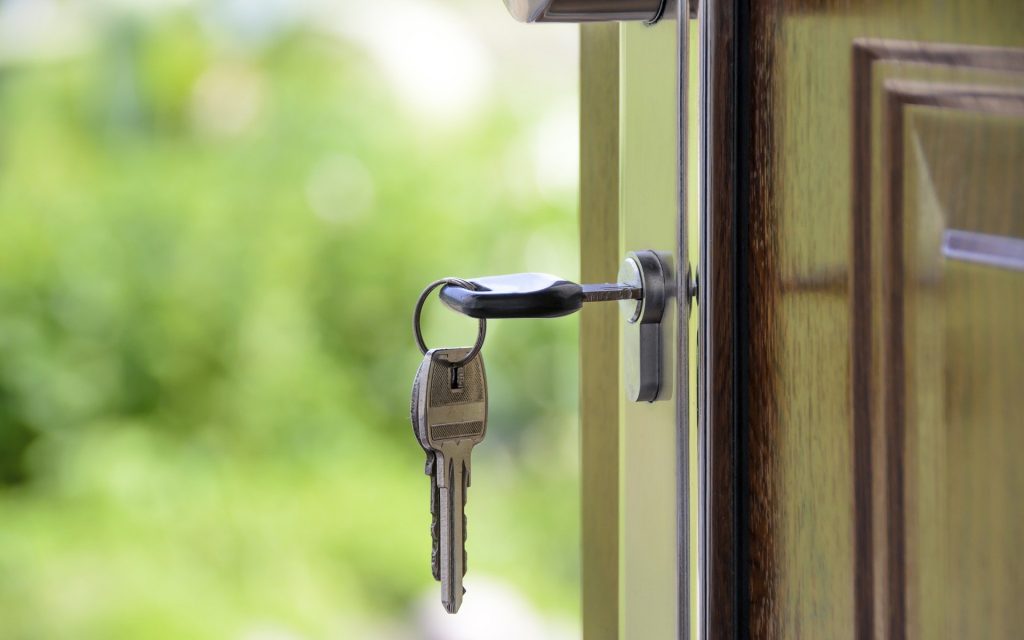 Housing
Housing 
In the latest piece in our series looking at the impact of Coronavirus on Wales, Steffan Evans explores what can be done to assist social housing tenants who are struggling in the fallout of the crisis
The impact of coronavirus on Wales has been immense. Beyond the immediate health consequences, the pandemic has had a devastating impact on the Welsh economy. Our recent State of Wales briefing highlighted that as many as 1 in 6 people in Wales work in the sectors that have been shut down in an effort to limit the spread of the virus. At the time that many families have seen their incomes decrease, their living costs have increased, putting a squeeze on many families that were already struggling.
One cost that has increased is social housing rent. In recent weeks, as many households were coming to terms with the scale of the coronavirus outbreak, letters were landing through letterboxes across Wales informing households about increases in their social rent. These increases have been long planned, with the process of delivering notices underway before the full scale of the pandemic became apparent. With the full impact of coronavirus now painfully clear, however, many families who would have struggled to afford their rent even without any increase are faced with even greater pressures. What then, are the options available to social landlords and the Welsh Government to help tenants?
The Welsh Government and social landlords could work work together to discount rent arrears
On April 3rd the Welsh Government’s Minister for Housing and Local Government, Julie James AM, published a letter to social housing tenants. In the letter she acknowledges that many tenants will have recently been informed their rents will increase, but, seeks to reassure tenants that there will be support available. The Minister states –
All social landlords have agreed not to take eviction action against any tenants experiencing financial hardship as a result of coronavirus. I have asked them to go further and ensure every tenant can get support when they need it and that no tenants are left with unmanageable debts when the coronavirus crisis is over.
This suggests that the Minister is expecting social landlords not to pursue tenants for rent arrears that build up as a result of coronavirus, holding the debt on their balance sheet in the short term. Whilst this is welcome news and could assist thousands of households across Wales, it is not a very transparent way of providing support.
Immediate questions that arise from the Minister’s statement are what constitutes, an “unmanageable debt” and how would a tenant/ landlord prove that that debt was a result of coronavirus? This lack of clarity could see many tenants choosing to cut back on spending on other essentials such as food, for fear of having to repay significant arrears over the longer term.
There is also a need for greater clarity on what the Welsh Government’s medium to long term plans are with regards to the increased debt social landlords will be holding. Increased debt could have an impact on a social landlord’s regulatory rating, and lead to a landlord breaching borrowing covenants. Asking social landlords themselves to repay the debt would severely impact their ability to construct new social housing and put pressure on them to increase rents further in 2021/22. Will the Welsh Government therefore be prepared to pay down some or all the debt accrued by social landlords over the next few weeks and months?
Delay the increase in social rent
Another option for social landlords could be to delay the date on which rent increases take effect. In Northern Ireland, the Communities Minister, Deirdre Hargey MLA has announced that the Housing Executive will delay the increase in social rent that was due to take effect on April 6th until October 1st. York City Council, meanwhile have delayed a proposed increase in social rent for 3 months, saving families vital money. It could be questioned, however, whether delaying the increase in rent will really assist those households who would struggle to afford their rent even without an increase?
Increased use of DHPs
Another avenue for assisting social housing tenants would be for the Welsh Government to provide additional funds to local authorities for Discretionary Housing Payments (DHPs). DWP have provided Welsh local authorities with £10.53 million to fund DHPs for 2020/21. This fund is likely to come under huge strain. Local authorities in Wales are permitted to spend an additional £15.8 million on DHPs, and if the Welsh Government were to provide them with those funds it could significantly increase the number of households that receive support, in both the private and social rental sector. Whilst there is clearly a need to increase the funds available for DHPs, the fund’s restrictive eligibility criteria and its discretionary nature means it’s unlikely to support everyone in need.
A social rent holiday
A more radical solution that the Welsh Government could pursue would be to fund a social rent holiday for all tenants. Providing such a holiday would ensure that no family in the grips of poverty would see their housing position worsen during the course of the crisis. This is already a step that has been taken by other organisations including energy and mortgage providers. Adopting such a policy could have significant short and medium term financial implications for both tenants and landlords, however, depending on whether tenants would be required to repay some or all of the rent later in the year.
What is the solution?
No one of the four options available to the Welsh Government is likely to resolve the challenges presented by coronavirus as of themselves. It is therefore likely that the Welsh Government and social landlords will need to adopt a combination of these approaches if they are to help tenants through this challenging period.
In the longer term however, the crisis raises fundamental questions about the viability of continuing to ask tenants to cover the costs of constructing new social housing through their rents. As the crisis has demonstrated, at time of financial hardship, those already living on the margins of poverty are often squeezed the hardest. Has the time now come to move to a fairer, more sustainable and a more redistributive approach to funding the construction of new social housing in Wales?


